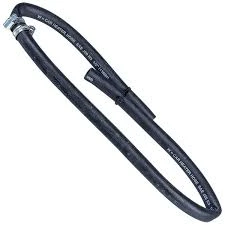Flexible Fuel Hose for Efficient Gasoline Transfer and Delivery Solutions
ഡിസം . 11, 2024 07:27 Back to list
Flexible Fuel Hose for Efficient Gasoline Transfer and Delivery Solutions
Understanding the Importance of Gasoline Hoses in the Fueling Industry
Gasoline hoses play a crucial role in the fueling industry, serving as essential conduits for the safe and efficient transfer of gasoline from storage tanks to vehicles. While they may seem like a small component of a much larger system, the relevance of gasoline hoses cannot be underestimated. Their design, material, and maintenance standards significantly affect safety, efficiency, and compliance with various regulations.
The Composition of Gasoline Hoses
Gasoline hoses are typically constructed from various materials, including rubber, PVC, and thermoplastic elastomers. These materials are chosen for their durability, flexibility, and resistance to the harsh chemicals found in gasoline. The inner lining of a gasoline hose is particularly important, as it comes into direct contact with the fuel. A quality inner lining must be resistant to fuel permeation, preventing the absorption of gasoline and the release of harmful vapors into the environment.
In addition to the inner lining, gasoline hoses are often reinforced with synthetic fibers to increase their strength and prevent kinking or damage under pressure. The outer layer of a gasoline hose is designed to protect against abrasion and environmental factors, such as UV radiation and extreme temperatures. Given the nature of the product they transport, gasoline hoses must meet strict industry standards, including those set by organizations like the American Petroleum Institute (API) and the Society of Automotive Engineers (SAE).
Safety Considerations
Safety is paramount in the handling of gasoline. Any leak, burst, or failure in a gasoline hose can lead to disastrous consequences, including fires, environmental contamination, and financial losses. As such, regular inspection and maintenance of gasoline hoses are essential practices in the industry.
Operators should look for signs of wear and tear, such as cracks, bulges, or soft spots in the hose material
. Additionally, hoses should be replaced according to a predefined schedule, typically based on usage, age, and manufacturer recommendations. Failure to maintain a gasoline hose properly can lead to leaks and spills, which not only pose safety risks but can also result in significant regulatory fines.gasoline hose

The Role of Technology in Gasoline Hose Manufacturing
Advancements in technology have further enhanced the safety and performance of gasoline hoses. Modern manufacturing techniques allow for the creation of hoses with improved chemical resistance and longevity. Innovations such as braided reinforcements and specialized coatings have been developed to resist the deterioration caused by exposure to gasoline and other petrochemicals.
Furthermore, the adoption of digital technologies, including sensors and monitoring systems, is transforming how fuel transfer is managed. For instance, integrated sensors can detect leaks in real-time, alerting operators immediately to potential issues. This proactive approach to maintenance minimizes the risk of catastrophic failures and enhances the overall safety of fueling operations.
Environmental Considerations
Environmental protection is another critical aspect of gasoline hose usage. With growing concerns about climate change and pollution, many regulatory bodies are tightening restrictions on how fuel is handled and stored. Gasoline hoses that minimize vapor emissions and prevent leaks are becoming increasingly sought after.
In response to these demands, manufacturers are innovating greener options for gasoline hoses. Some companies are developing hoses made from recycled materials or using processes that reduce waste and energy consumption during production. These sustainable practices not only help the environment but also appeal to consumers and operators seeking to improve their environmental footprint.
Conclusion
In conclusion, gasoline hoses may be a seemingly mundane component of the fueling process, but they are vital for safety, efficiency, and environmental protection. Understanding their construction, maintenance requirements, and the advancements in technology that enhance their performance is essential for anyone involved in the fueling industry. As technology continues to evolve, and as environmental and safety standards become more stringent, the importance of high-quality, reliable gasoline hoses will only grow. Thus, continuous investment in research, development, and compliance will remain key to ensuring safe and efficient fuel transfer operations in the future. In this ever-evolving landscape, gasoline hoses will undoubtedly remain an integral component of the fueling infrastructure.
